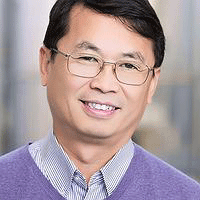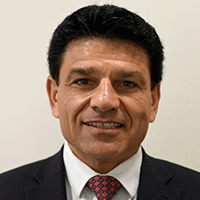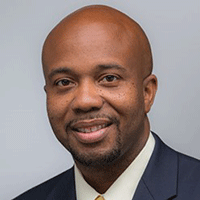Keynote Speaker
Thursday, June 17
12:00pm – 1:00pm EDT

Prof. J. Yan
Mälardalen University & Royal Institute of Technology, Sweden
Editor in chief of Applied Energy
Keynote Title: Energy Transition Towards Carbon Neutrality: Challenge and Opportunities
Abstract: To achieving the future carbon neutrality, energy systems are under the transition with high renewable energy penetration. The flexibility of the energy systems becomes more important for dynamic balancing of supplies and demands. This lecture focuses on the challenges and opportunities associated with energy transitions, for example, spatial and temporal characterization of energy demand and renewable resources for urban district, smart intervention with the new technologies for consumers into prosumers, and integration of renewable energy with energy storage. We argue that the renewable industry has reached the tipping point of competitive costs. We call for accelerating and promoting market-based distributed energy technologies, energy storage, and smart integration of prosumers to respond energy transition.
Prof. Jerry Yan, PhD: Prof. Jerry Yan is chair professor of Energy Engineering at Mälardalen University, Sweden. Prof. Yan's research interests include advanced energy systems; renewable energy; advanced power generation; climate change mitigation technologies and related environment and policy etc. Prof. Yan published about 400 papers including papers in Science, Nature Energy, Nature Climate & Nature Communications and hold 10+ patents with about 15000+ citations and H-index 63. Prof. Yan is the editor-in-chief of Applied Energy journal (Impact factor 8.848), Advances in Applied Energy, & editor-in-chief of Handbook of Clean Energy Systems. He is the Chair of International Conferences on Applied Energy. He is an academician of European Academy of Sciences and Arts, and serves as the advisory expert to the UN, EU, & ADB etc. Founder of ICAE, AEii, UNiLAB, iCET, Energy Proceedings, EnerarXiv and OC:E etc. He has led research platform (Future Energy Profile) with funding of over 80 MEuro by Swedish Knowledge Foundation and industrial partners, and participated in several EU Projects (FP5, FP6, FP7, and Horizon) and other international and national projects. He was granted with several awards, such as Global Human Settlements Award of Green Technology, 2014 with supported by UNDP etc. Finalist of SWFF (Securing Water for Food: A Grand Challenge for Development) award by USAID, Government of Sweden and the Netherlands, 2015; William Mong Distinguished Lecture, Hong Kong, 2017. Energy Islands' Award conferred by the European Union with the project TILOS (2017), Highly Cited Researcher 2019 (one of the two selected in engineering in Sweden) by Web of Sciences (2020), IVA's Research2Business Top100 (IVA=Swedish Royal Academy of Engineering Sciences).
Plenary Speakers
Wednesday, June 16
12:20pm – 1:10pm EDT

Dr. James Klausner is a Professor and Dean of Engineering at the UAE University and is formerly an MSU Foundation Professor and Mechanical Engineering Department Chair at Michigan State University (2016-2021). He is the co-founder of a grid scale energy storage company, RedoxBlox. He formerly served as Chair of the ASME Heat Transfer Division (2011-2012). He serves on the board of directors for the American Society of Thermal Fluid Engineers and the International Titanium Association Foundation. For three and a half years he served as a Program Director at the U.S. Department of Energy Advanced Research Projects Agency-Energy (ARPA-E). Prior to that he held the Newton C. Ebaugh Professorship in Mechanical and Aerospace Engineering at the University of Florida (1989-2015). He received his Ph.D. degree in 1989 from the University of Illinois, Urbana-Champaign. He has made substantial fundamental contributions to understanding the dynamics of boiling heat transfer systems. He has made many fundamental and applied research contributions in high temperature thermochemistry, waste heat and solar driven desalination, and high heat flux phase-change heat transfer. Dr. Klausner has authored more than 150 refereed publications, and his theoretical work on boiling dynamics is included in the Handbook of Heat Transfer. He is the author of ten patents and four provisional patents. He is a Fellow of the American Society of Mechanical Engineering and the American Society of Thermal Fluid Engineers. He is a recipient of the ASME Heat Transfer Division Memorial Award and the 75th Anniversary Award.
Plenary Title: High Temperature Thermochemical Processes for Energy Storage
Abstract: Significant growth of renewable energy production is viewed as fundamental to decarbonizing electricity generation and industrial heat. The highly variable characteristic of renewable energy necessitates a variety of low cost and scalable energy storage solutions, depending on the duration of storage needed. Energy storage technologies will ideally handle hourly, daily, weekly, and seasonal variations to enable a reliable net zero carbon energy supply. Thermochemical energy storage has gained significant interest to address the need for low cost grid scale storage. The storage of excess energy from renewable electricity generation or concentrated solar power considered in this talk is attained by the endothermic reduction of magnesium manganese oxide (Mg-Mn-O) at high temperature (> 1350°C) and low oxygen partial pressure (inert gas sweep or vacuum pumping). Oxidizing the reduced media using air or oxygen releases the stored energy in the form of high exergy (temperature) heat. This talk considers two unique high temperature thermochemical energy storage technologies that enable daily to seasonal storage. The first storage concept considers a bed of Mg-Mn-O pellets packed within a highly insulated steel pressure vessel. The storage of excess energy from renewable electricity generation or concentrated solar power is attained by the endothermic reduction of magnesium manganese oxide (Mg-Mn-O) at high temperature (> 1350°C) and low oxygen partial pressure (inert gas sweep or vacuum pumping). Oxidizing the reduced media using air or oxygen releases the stored energy in the form of high exergy (temperature) heat. The first storage concept (daily/weekly) considers a bed of Mg-Mn-O pellets packed within a highly insulated steel pressure vessel. Excess renewable electricity from the grid is used to resistively heat the reactive Mg-Mn-O pellets to 1500°C, and a gas blower is used to evacuate pure oxygen that evolves as the packed bed is thermally reduced. As compressed air reacts with the Mg-Mn-O bed in the oxidation mode, the air is heated, and it expands across a turbo-generator to put electricity back on the grid. The second storage concept is a very simple solid-state fuel synthesis concept that is based on a tubular falling bed reactor, consisting of Mg-Mn-O pellets, with countercurrent oxygen-depleted gas flow for complete heat recuperation. The falling bed reactor may be heated within a concentrating solar power furnace or an electrically heated furnace. Consideration is given to fundamental engineering analysis and cost for both systems, and the measured performance that has been achieved to date will be highlighted. Potential strategies for commercial deployment will be discussed.
Friday, June 18
11:20am- 12:10pm EDT

Dr. Roderick Jackson is the laboratory program manager for buildings research at NREL. He sets the strategic agenda for NREL's buildings portfolio, while working closely with senior laboratory management. The portfolio includes all research, development, and market implementation activities, which aim to improve the energy efficiency of building materials and practices. He also guides discussions with the U.S. Department of Energy (DOE) Building Technologies Office to expand research ranging from grid-interactive efficient buildings to mechanical and thermal properties of building materials. At NREL, Dr. Jackson was recognized as a Distinguished Member of Research Staff. He is serving a three-year appointment to the American Council for an Energy-Efficient Economy (ACEEE) Research Advisory Board, which began in 2021. He has been a member of the American Society of Heating, Refrigerating and Air-Conditioning Engineers and has received several awards in his career, including the National GEM Consortium Alumni of the Year and Greater Knoxville Business Journal's 40 under 40.
Read more about Dr. Jackson
Plenary Title: Building A Just Transition to a Sustainable Energy Future
Abstract: Residential and commercial buildings consume roughly 74% of U.S. electricity and are responsible for approximately 35% of carbon emissions. As a result, there is no pathway to a sustainable energy future that does not prioritize a transformation in how we use, store, and generate energy in our nation's buildings. Consequently, the importance and timeliness of research, development, demonstration, and deployment of clean energy building technologies is more pressing than ever. However, inequities that permeate society are acutely prevalent in the energy economy, particularly in the buildings sector. Therefore, as we transition to a sustainable energy future, we should prioritize a "just transition," where we ensure the benefits, as well as costs, are more equitably distributed. As a scientific and technical community, we should take the lead in centering equity in clean energy technology innovation by permeating equity throughout the RDD&D spectrum.
This talk will discuss pathways to achieve a just transition toward a sustainable energy future. It will highlight current Department of Energy and national laboratory RDD&D efforts that advance clean energy goals. The talk will conclude by challenging the ASME community to look through a lens of equity that prioritizes an equitable distribution of benefits and costs for our sustainable energy future.